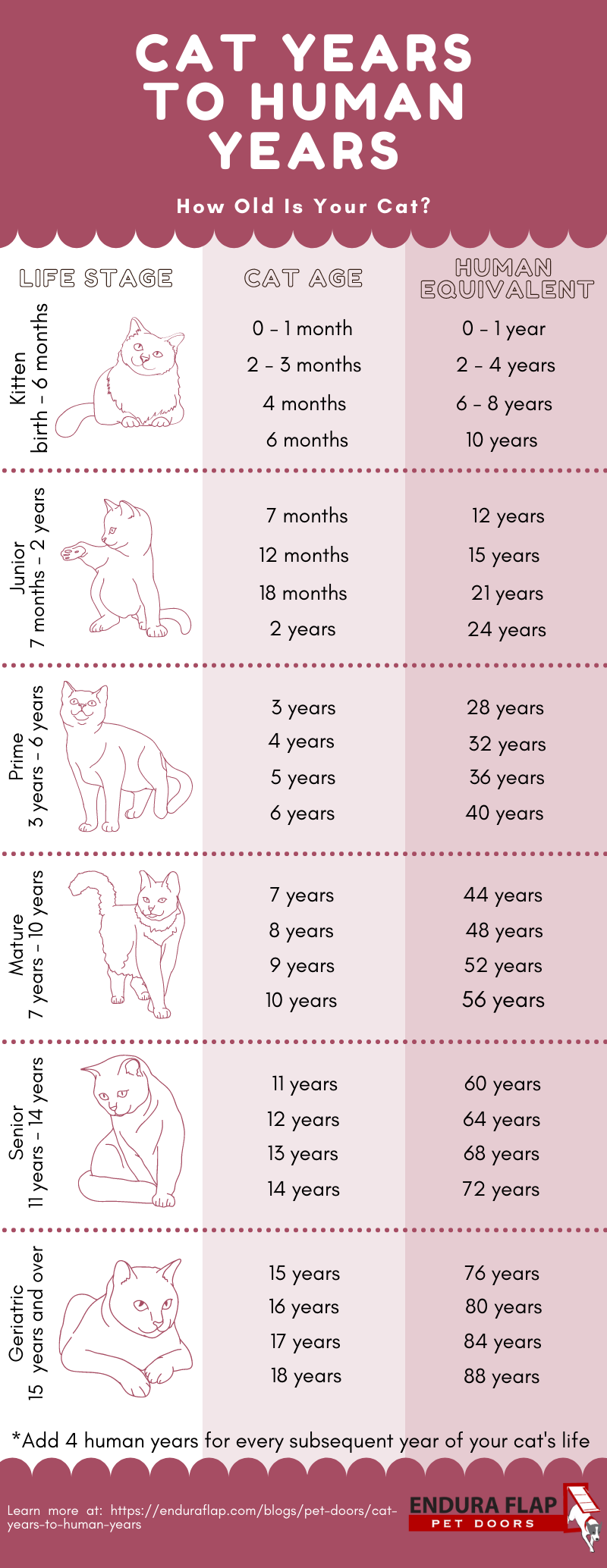Table Of Content

Even though most felines have admirable life expectancies, it’s still sad that our furry friends can’t stick around longer. To ensure that your cat lives to reach a ripe old age, make sure to feed them a complete and balanced diet, get them neutered, take them to regular vet appointments, and provide safety in the home. Thanks to advances in feline medicine, nutrition, and care, our house cats are living longer, healthier lives. And it’s a pet parent’s responsibility to help their kitty reach those golden years by giving him proper care for each life stage. Whether your cat resides completely indoors or goes in and out throughout the day can have more of an impact on their lifespan than some cat owners may realize.

Can an Indoor Cat Live Longer Outdoor?

Discuss any changes in behavior in your senior cat with your veterinarian. It’s commonly recommended for cats 10 and older to have bloodwork and urine testing done every six months, as organ health can change quickly. Older cats are also prone to blood pressure issues, which can lead to strokes and blindness.
One Vet
Is Having an ‘Outdoor Cat’ Cruel? The Short Answer: YES - PETA
Is Having an ‘Outdoor Cat’ Cruel? The Short Answer: YES.
Posted: Thu, 25 May 2017 14:12:09 GMT [source]
Here’s everything you need to know about the lifespan of cats. The possibility of contracting a disease increases as the cat is in contact with the outside environment. When he goes looking for a female cat in heat, male fights are common, as well as the spread of viruses and bacteria. But it is not strange that in optimal conditions, they can also reach 18 or 20 years of age, and perhaps even a few years more. The cat owning populations of developed countries are becoming more educated about and better able to provide the care that our cats need, both physically and behaviorally. And with a little creativity and flexibility, you can help almost any cat live a longer, happier, healthier life.
Increasing Your Cat’s Life Expectancy:
There are certain cat breeds with longer life spans, which are discussed later down in this article. Keeping your cat at an ideal body weight and allowing them plenty of opportunities to get exercise, will help mitigate weight issues in the long run. Contact your veterinarian to help you come up with the best weight and exercise plan specifically for your pet. This advice is not a substitute for a proper consultation with a vet and is only intended as a guide.
For example, cats who are overweight may not live as long, and the same goes for cats who aren’t eating a healthy diet. Injuries and diseases, such as FIP in cats, can also play a role in how long your cat lives. While annual health screenings are sufficient for young cats, visiting the vet twice a year for a checkup is recommended for senior cats. As cats grow and age, they go through five distinct life stages, according to the American Association of Feline Practitioners.
How to Increase Your Cat’s Life Expectancy
Unfortunately, the threats of living outside far exceed the threats that an indoor cat will typically face in its lifetime. Cats are great at hiding illness so owners should pay attention to any changes in behaviour. Changes such as moving around less, difficulty jumping as high and weight gain or loss could be put down to ageing but they could also be a symptom of illness. If you’re concerned at all it’s best to contact your vet or out of hours your nearest Vets Now for advice.
With the ability to pack on pounds easily when overfed and under-exercised, maintaining an optimal weight is crucial for cats to achieve maximum lifespans. They are described as robust, energetic, and often retaining kitten-like personalities late into their senior years. Their longevity may stem from good genes as well as their playful and engaging temperament keeping them active and mentally stimulated. Additionally, behavioral changes can include a reduced or picky appetite and less frequent grooming. Your cat is going to become more tired and less active as time goes by. As your cat gets older and into the later years of their life, they may no longer act like the kitten you once knew.
Outdoor cats tend to live far shorter lives than their more domesticated counterparts. The University of California, Davis’ Clinical Animal Behavior Service reports that the average life expectancy of an outdoor cat is just two to five years. The average kitten owner can expect healthy domestic cats to live for more than a decade with an appropriate diet and healthcare regimen. Some feline fanciers have seen their pets live even longer, offering more than two decades of unconditional love.
I spent $7,000 on my cat's medical bills, and I have only one regret - CNBC
I spent $7,000 on my cat's medical bills, and I have only one regret.
Posted: Thu, 06 Apr 2017 07:00:00 GMT [source]
Cat Lifespan Summary:
As previously mentioned, whether your cat is an indoor-only cat or not can significantly impact its lifespan. Indoor cats tend to live twice as long as outdoor cats, and they also usually outlive cats that are allowed outdoors part time without supervision. One factor that significantly impacts a cat’s lifespan is the healthcare it receives throughout its life. Pet insurance may help cover your cat’s annual health checkups as well as diagnosis and treatment of a number of common cat illnesses, which can help improve its chances of a long and healthy life. Some lucky felines have been known to live 20 years or more—the world record holder for oldest cat on record, adorably named Creme Puff, lived to be a whopping 38 years old. You'll often hear that you can multiply your cat's age by five to get their age in “human” years, but, in fact, this is misleading and not sufficiently accurate.
Whether your cat is an indoor or outdoor cat, you probably still take them for their needed cat vaccinations. There are many factors that can shorten or lengthen your cat’s lifespan. Please keep in mind, that this is more the majority of cats, most of the time. There will always be outliers when talking about how long do cats live for. While cats may have nine lives in mythology, in reality most domestic cats live years with proper care.
Your goal as a pet owner is to provide similar mental stimulation for optimal health and longevity. Remember that our pets are ruled by instincts shaped by an environment that doesn’t exist in our homes. It’s up to you to provide enrichment, which can improve their mental and physical well-being. Cats are social and intelligent animals, and they need time to interact with you.
Kitten’s need a slightly more nutrient dense diet compared to adults, so they should always be fed kitten food. Pregnant and lactating cats should also be fed special diets for this life stage. Beyond this, there are special diets designed for specific health conditions, so you should always talk to your veterinarian about the ideal diet for your cat. Dutch is an online veterinary pet telehealth service, created by pet parents and board-certified veterinary specialists. We use a science-backed approach to provide pets relief for their everyday physical and behavioral health issues.
Providing an enriched home environment and adapting as your cat ages can help maximize lifespan and quality of life. A cat’s longevity depends on a mix of genetics, lifestyle factors, medical care, and luck in avoiding serious illnesses or injuries. Some beneficial factors include spay/neuter, indoor lifestyles, high-quality nutrition, routine veterinary care, and attentive owners to detect health problems early.
They may sleep more and be less active, and may begin to put on weight. They might also show signs of declining vision, hearing loss or joint stiffness. Some elderly cats lose weight as they become more susceptible to common old-age illnesses like kidney disease. Indoor cats need activity and exercise to stay fit and healthy. Cats with sedentary lifestyles are more likely to have health issues that can lead to a shortened lifespan.

No comments:
Post a Comment